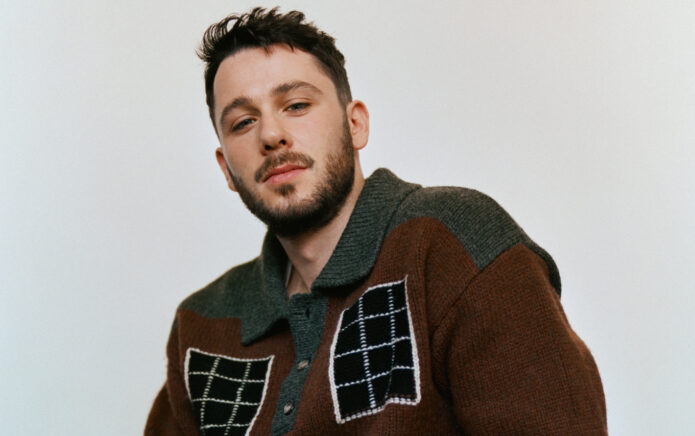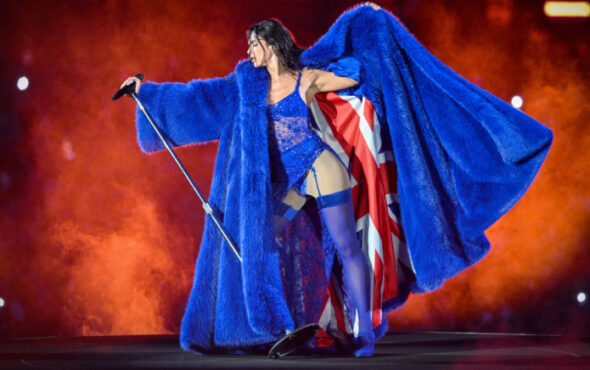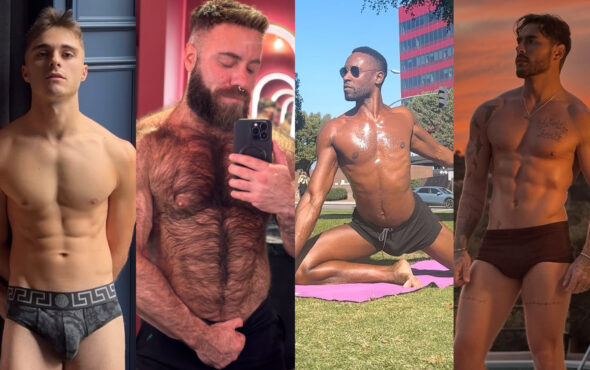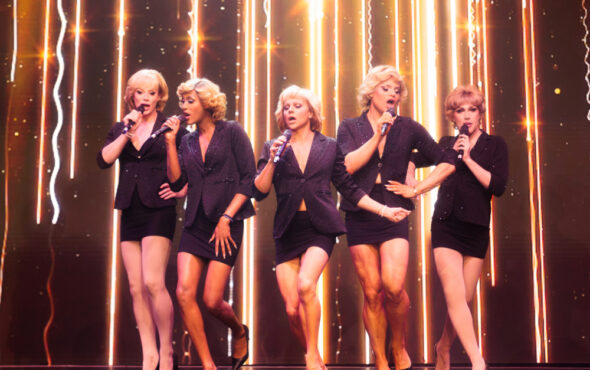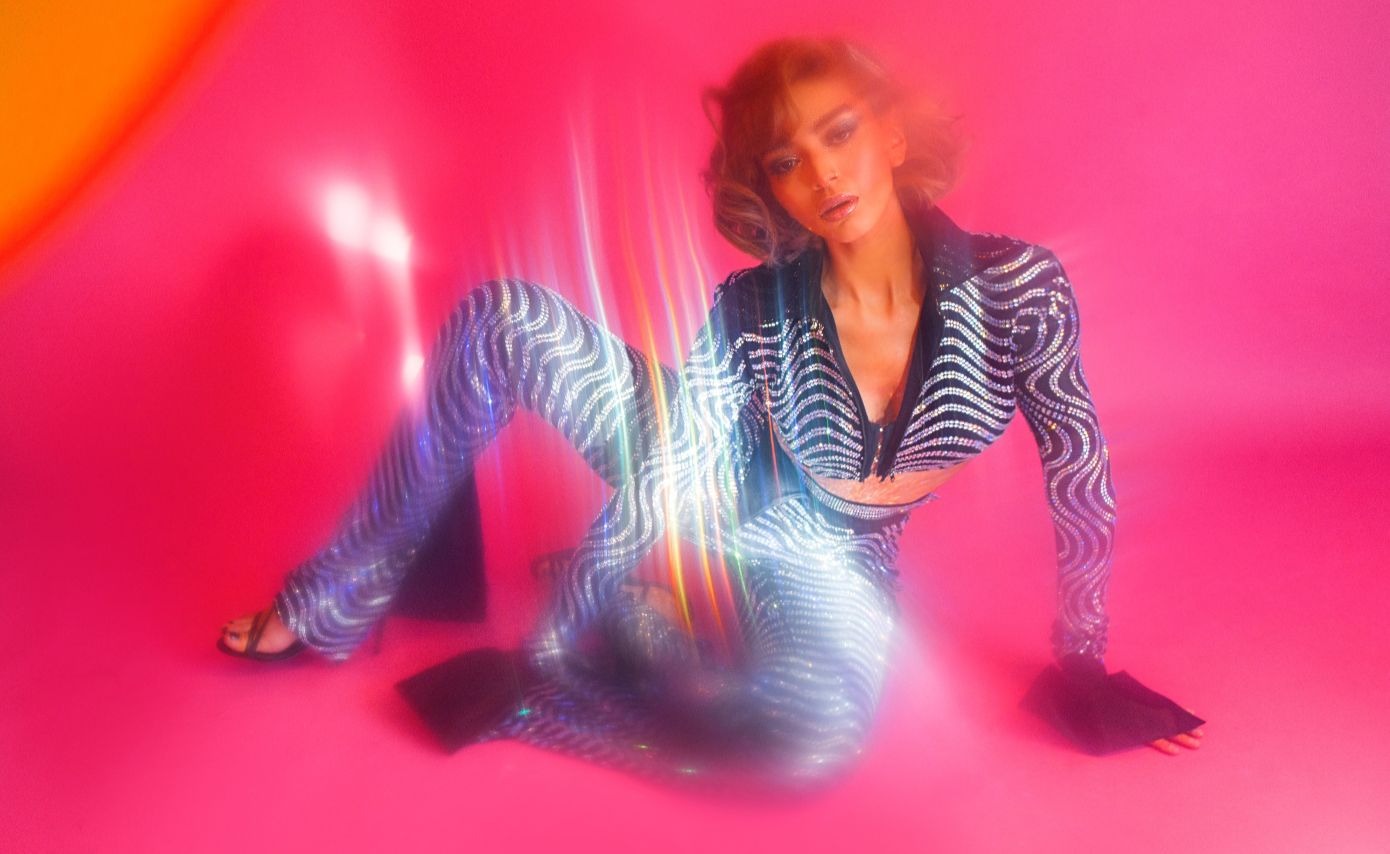
It’s pretty much an understatement to say that COVID-19 has hit the music industry hard. Almost every interview with a musician during the past few months touches upon how they long to be back on stage and interacting with their fans. However, the global pandemic has not stopped the release of new music, and at the end of June, rising Latinx singer Tatiana Hazel released her second EP, Duality, something that she produced most of, engineered, mixed and mastered.
Instead of just simply releasing all the tracks, Tatiana delivered live performances of each of the songs over on her YouTube channel. “I wanted people to get a sense of the EP visually as well as sonically,” she explains to GAY TIMES. And it certainly worked, with fans enthusing over each performance, particularly break-up anthem In My Room and summer smash hit Carmen Sandiego.
On top of that, she also created her own Duality tee, with 100% of proceeds being donated to the Brave Space Alliance, an NGO based in her native city of Chicago that champions Black trans women. And she hopes that more artists may do more to support the trans community, saying: “There are trans designers, makeup artists, photographers, producers, etc. that can add so much to an artist’s project, as well as trans music artists that can benefit from being highlighted on a larger artist’s platform.”
Last month, Tatiana was part of a Conciencia Talk, alongside former GAY TIMES cover stars Pabllo Vittar and Lauren Jauregui, to discuss the integral role the Black Trans community plays in shaping our culture and music.
GAY TIMES caught up with Tatiana to discuss Duality, who her dream collaboration is, as well as what it’s like to be sharing the same space as Latinx superstars like Pabllo and Lauren.
"My entire goal of releasing music is that once it’s out it no longer belongs to me, it’s for people to interpret and apply to their own lives in a way that pushes their own personal journey forward."
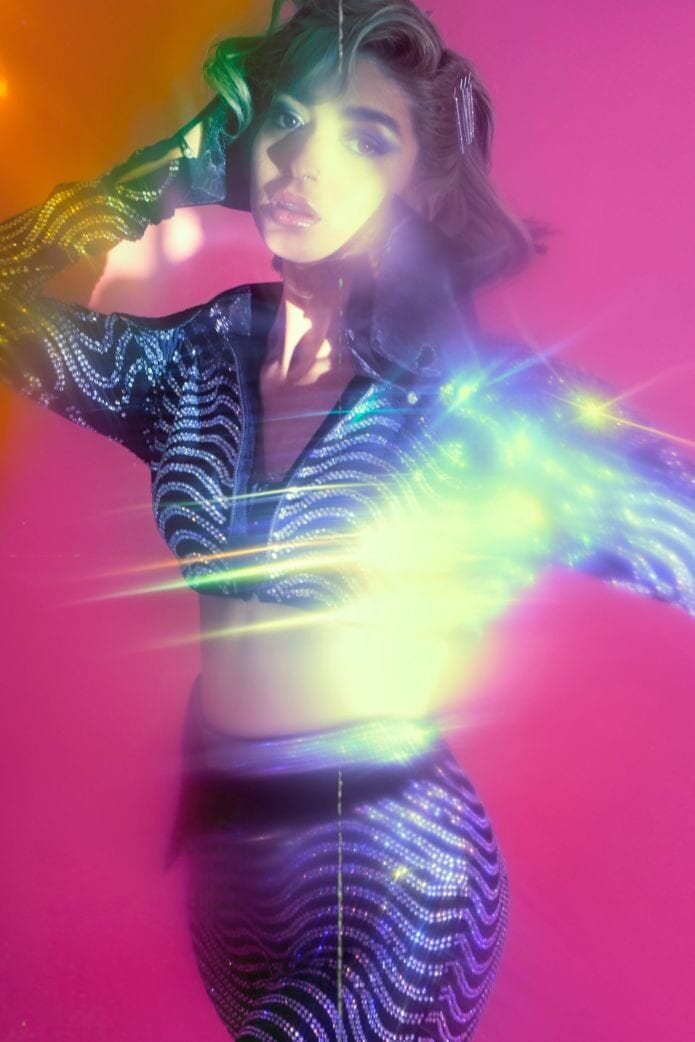
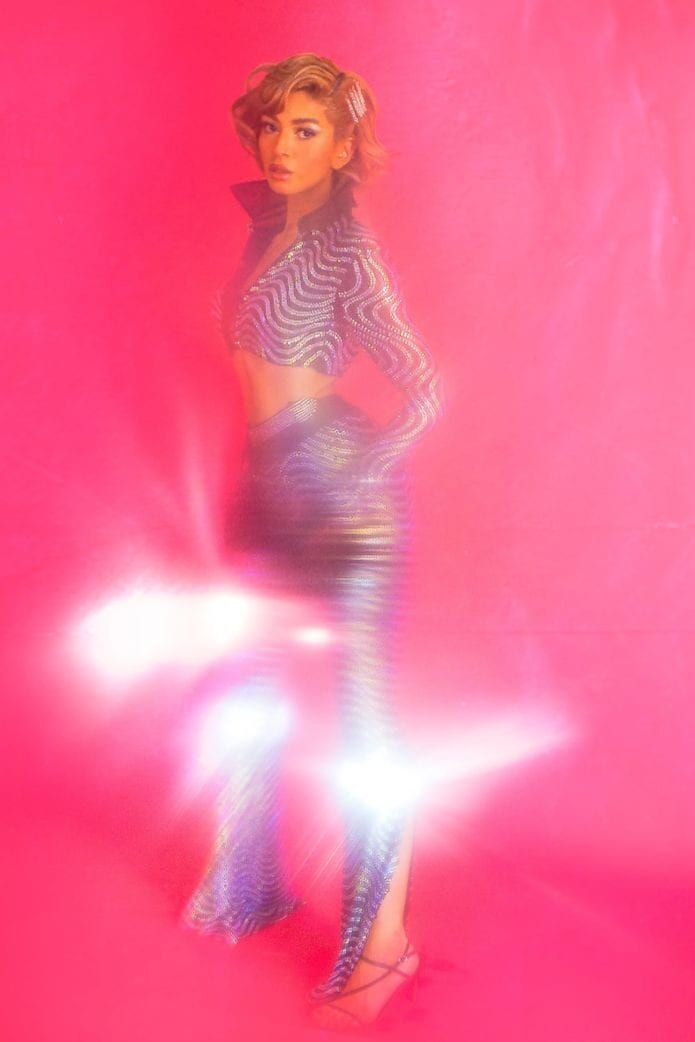
What was the inspiration behind Duality?
I wrote the songs over the course of a year during which I was doing a lot of traveling internationally and throughout America’s major cities. I was inspired by the people I met along the way and through new experiences that made me acutely aware of the Duality within myself.
It’s been a month since the EP released, how has the reaction been?
I’ve been getting a lot of messages from people about how the songs have impacted their lives in ways I never could’ve predicted or intended so that’s been really amazing. My entire goal of releasing music is that once it’s out it no longer belongs to me, it’s for people to interpret and apply to their own lives in a way that pushes their own personal journey forward.
I loved watching the live performance, why did you decide to perform rather than just releasing the music?
Mostly because of COVID-19 and the fact that people aren’t able to see live performances for a long time, which is how many artists, including myself, connect with their audience. I wanted people to get a sense of the EP visually as well as sonically.
Was your outfit in the performance your own design, and what can people be expecting on the fashion front?
It was not. It was by a brand called I Love Pretty, her stuff is amazing. I usually wear all my own designs but I do not currently have access to sewing equipment during quarantine, so I’ve been using other up and coming designers for some of my shoots/videos. I am still designing and hope to execute the collection once I am able to produce garments again.
Summer Girl is the first time that you use pronouns in your music, how important for you was it for your music to start becoming more explicitly queer?
I don’t exactly identify as queer to be honest. I don’t like to label myself as anything really. I connect with other human souls, and the body they are attached to doesn’t matter so much in my eyes, it’s all fluid. That being said, this particular song happens to be about a woman, and I think it’s just important to always be myself and to make other people feel that they are able to do the same.
In My Room is such a great break-up song, was there a story behind it?
Yes, definitely a break up ha, ha. It’s that feeling of wanting to shine so bright that the pain someone else caused me hurts less, but truly knowing that I’m doing it for myself and not actually for anyone else. I wrote the song on guitar in about 10-15 minutes and then produced and mixed it all in one day, it came together pretty quickly.
Both of your EPs so far have been self-produced, but is there anyone you’d like to collaborate with in the future?
I would love to work with Mark Ronson one day, I just keep putting that one out into the universe.
"There is still a long way to go, but it is important to recognize and uplift the people who have been and continue to be at the forefront of this movement."
You recently appeared in a great talk with legends like Pabllo Vittar and Lauren Jauregui, what was it like sharing a space with them?
Amazing! They have all accomplished so much in their respective fields and I have a lot of respect for them all. It was great having such an important conversation with like-minded creatives, and hopefully people learned something from it.
One of the questions I liked was asking about the positives of being LGBTQ+, why is it important for us to focus on these positives rather than the negatives?
Focusing on the positives allows the community to move forward and also experience the feeling of joy and freedom even during hard times.
You are very vocal about your support of the trans community, what do you think music artists can do to create a more inclusive space for our trans brothers and sisters?
I think music artists can highlight and collaborate with trans artists a lot more often. There are trans designers, makeup artists, photographers, producers, etc. that can add so much to an artist’s project, as well as trans music artists that can benefit from being highlighted on a larger artist’s platform. Also, bringing awareness to communities of trans and LGBT communities and organizations that need funding in order to sustain the community. I personally have been supporting the Brave Space Alliance, a Black, Trans-led organization in my hometown, Chicago. They are doing amazing work to feed, house, and support the black and brown LGBT community of Chicago.
Sadly, racism is incredibly prevalent in the LGBTQ+ community, how do you think we can address this?
I think it’s really important for people to learn the history of LGBTQ rights. The Stonewall riots were led by the black and brown LGBTQ community, and without them gay rights as we know them today would not exist. There is still a long way to go, but it is important to recognize and uplift the people who have been and continue to be at the forefront of this movement.
In the crazy year that has been 2020, what else can we expect from Tatiana Hazel?
I’m currently working on my first ever album and also a side project under a different name. I’m not sure of the release date for either, but I’m just grateful to be able to keep creating during these trying times.
Duality is currently available to stream now.
